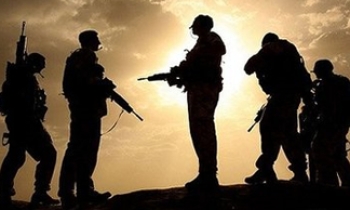A Mexican journalist who was critical of local authorities in the northern state of Durango was fatally shot by unidentified assailants on Sunday. In a piece published a day before the killing, the reporter wrote that he had been threatened by local government officials. The Committee to Protect Journalists (CPJ) has called on local and federal authorities to thoroughly and expeditiously investigate the crime.
Around 5 p.m. on Sunday, two pickup trucks intercepted Carlos Ortega Samper, a reporter for the Durango City-based daily El Tiempo de Durango, as he was driving home in the town of Santa María El Oro, 320 km (200 miles) north of the state capital, colleagues told CPJ. Four unidentified individuals got off the trucks and pulled the reporter from his car, journalists at El Tiempo de Durango said. As Ortega resisted, his assailants shot him three times in the head with a .40-caliber pistol, according to press reports and CPJ interviews. Ortega, 52, died at the scene.
In an article published Saturday, Ortega alleged that Mayor Martín Silvestre Herrera and Juan Manuel Calderón Guzmán, the local representative for federal programmes, had threatened him in connection with recent reporting on conditions in a local slaughterhouse. In the same story, Ortega wrote that he was investigating a local police officer, Salvador Flores Triana, for alleged corruption. The journalist said that the three men should be held responsible if anything were to happen to him or his family.
Ortega, also an attorney, had worked as the Santa María El Oro correspondent for El Tiempo de Durango for less than a year. His editor, Saúl García, told CPJ that he believes Ortega was killed in retaliation for his reporting on local government corruption. However, he said he could not pinpoint a specific story.
"We are shocked by Carlos Ortega Samper's killing," said CPJ Executive Director Joel Simon. "Given the allegations the reporter made against local government officials, it is imperative that local and federal authorities cooperate during the investigation into his murder. It is time to put an end to impunity in the killings of Mexican journalists."
“It is tragically symbolic that Ortega was gunned down on May 3, a day dedicated to press freedom throughout the world, in what is now the western hemisphere’s most dangerous country for journalists,” Paris-based Reporters sans Frontières (RSF) said, voicing its support for Ortega’s family and colleagues. “We join the Tiempo de Durango’s management in calling for a proper investigation into this murder and we would also like to know why the Durango state judicial authorities paid no attention to the threats that Ortega had received.”
García told CPJ that the state attorney's office was investigating Ortega's murder. Authorities have not made a motive public.
Government offices in Santa María Del Oro were closed on May 5 for a national holiday, and CPJ could not reach any of the officials named by Ortega at their workplaces. Repeated calls to Calderón and Silverstre's homes went unanswered. A woman who answered Flores' phone and identified herself as his wife said he was not at home.
Coverage of the killing in the Mexican press made reference to Ortega's last story and his accusations against the three officials. The stories did not quote the officials as responding.
According to CPJ's annual survey, Attacks on the Press, Mexico is one of the most dangerous places for journalists in the world. Since 2000, 25 journalists have been killed, at least eight in direct reprisal for their work. In addition, seven journalists have disappeared since 2005. Most covered organized crime or government corruption.
CPJ research has found that local and state authorities in Mexico have been ineffective in solving press-related cases and, in some instances, have been complicit in the crimes. In June 2008, a CPJ delegation met with President Felipe Calderón, who expressed support for federal legislation protecting free expression. In April, the Mexican Chamber of Deputies approved a measure imposing penalties for crimes against "journalistic activity." The bill has stalled in the Senate.
Ortega, according to RSF, had worked for the Tiempo de Durango for the past year, writing an often caustic column. He had previously written for El Siglo de Durango, another regional daily, for five years. According to the tally kept by the National Commission for Human Rights (CNDH), he is the 48th journalist to be murdered in Mexico since 2000, and the third since the start of 2009.









